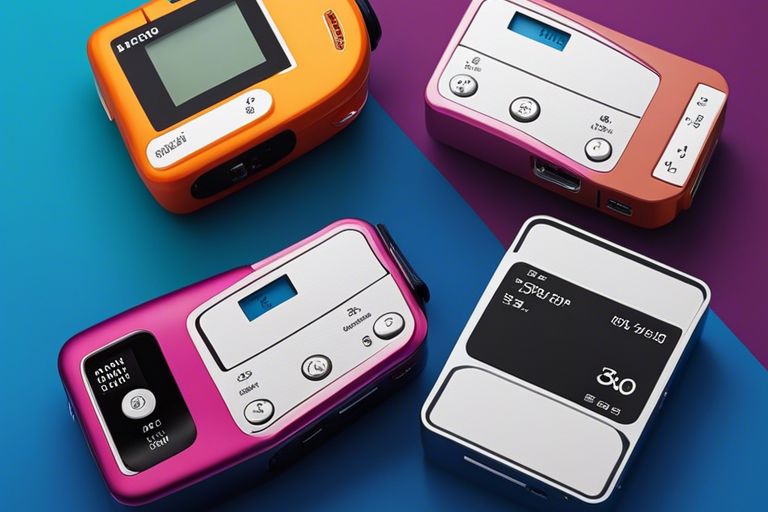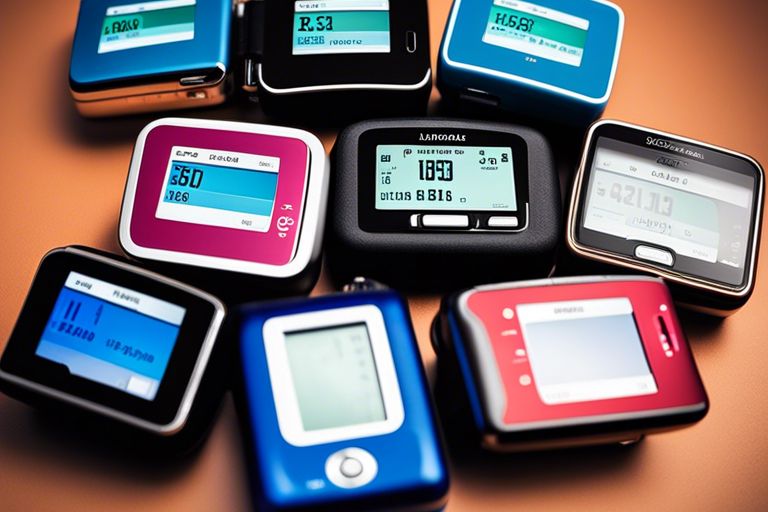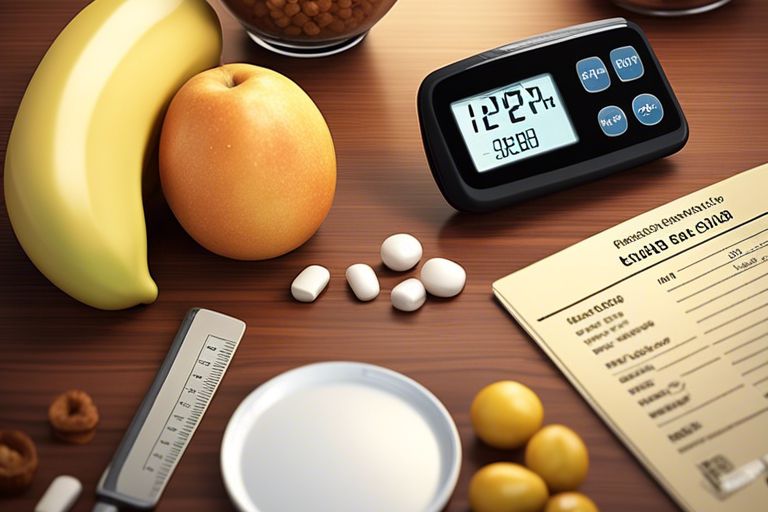Understanding how alcohol affects blood sugar levels is crucial for individuals with Type 1 Diabetes. Alcohol consumption can lead to fluctuations in blood glucose levels, making it challenging for those managing their diabetes. It is vital to be aware of the potential risks involved and to make informed decisions when consuming alcohol. This blog post will explore into the impact of alcohol on blood sugar levels in Type 1 Diabetes, exploring the effects it can have on managing the condition and providing valuable insights for individuals looking to maintain stable blood glucose levels while enjoying an occasional drink.
Key Takeaways:
- Alcohol consumption can affect blood sugar levels: Alcohol can lead to fluctuations in blood sugar levels in individuals with Type 1 Diabetes.
- Risk of hypoglycaemia: Consuming alcohol without food can increase the risk of hypoglycaemia, especially if insulin levels are high.
- Monitor blood sugar closely: It is crucial for individuals with Type 1 Diabetes to monitor their blood sugar levels before, during, and after consuming alcohol.
- Limit alcohol intake: Moderation is key when it comes to alcohol consumption for those with Type 1 Diabetes to manage blood sugar levels effectively.
- Seek advice from healthcare providers: Consulting healthcare providers for personalised advice on managing alcohol consumption and blood sugar levels is recommended for individuals with Type 1 Diabetes.
Understanding Blood Sugar Control in Type 1 Diabetes
Role of insulin in blood sugar regulation
Insulin plays a crucial role in regulating blood sugar levels in individuals with Type 1 diabetes. In the absence of naturally produced insulin, those with Type 1 diabetes rely on injected insulin to metabolise glucose and prevent blood sugar spikes. By facilitating the uptake of glucose into cells for energy production, insulin helps maintain stable blood sugar levels.
Factors affecting blood sugar levels in individuals with Type 1 diabetes
Various factors can impact blood sugar levels in individuals with Type 1 diabetes. These include diet, physical activity, stress levels, illness, and medication. Monitoring these factors is imperative for effective blood sugar management. This comprehensive approach is vital in maintaining optimal blood sugar control and overall health in Type 1 diabetes.
- Diet: Consistency in carbohydrate intake and meal timing is crucial in managing blood sugar levels.
- Exercise: Physical activity can either lower or raise blood sugar levels depending on intensity and duration.
- Stress: Emotional and physical stress can lead to fluctuations in blood sugar levels.
- Illness: Infections and diseases can cause blood sugar levels to rise, requiring close monitoring and adjustment of insulin doses.
- Medication: Other medications, such as steroids, can affect blood sugar control in individuals with Type 1 diabetes.
Alcohol Metabolism and Blood Sugar Levels
How the body processes alcohol
When alcohol is consumed, it is rapidly absorbed into the bloodstream through the stomach and small intestine. The liver is primarily responsible for metabolising alcohol, where it is broken down into acetaldehyde and then further metabolised into acetate. This process can affect various metabolic pathways in the body, including those involved in blood sugar regulation.
Alcohol’s acute effects on blood sugar regulation
Alcohol can have both immediate and delayed impacts on blood sugar levels in individuals with Type 1 Diabetes. Initially, alcohol can lead to a drop in blood sugar levels due to its inhibitory effect on glucose production by the liver. However, in some cases, especially when large amounts of alcohol are consumed or taken without food, it can later cause a rise in blood sugar levels as the liver prioritises metabolising alcohol over regulating glucose.
Alcohol Consumption in Individuals with Type 1 Diabetes
Short-term consequences of alcohol on blood sugar levels
Consuming alcohol can have a significant impact on blood sugar levels in individuals with Type 1 Diabetes. Initially, alcohol may cause a drop in blood sugar levels due to its effect on the liver, which is busy metabolising the alcohol rather than releasing glucose. However, this can be followed by a rebound high blood sugar effect as the liver overcompensates, releasing stored glucose into the bloodstream.
Long-term considerations and potential risks
Long-term alcohol consumption in individuals with Type 1 Diabetes can lead to various health risks and considerations. Chronic alcohol intake can disrupt glucose management, increase the risk of hypoglycaemia, and interfere with the effectiveness of insulin. Additionally, alcohol can contribute to weight gain and impact overall diabetes management, potentially leading to complications in the long run.
It is crucial for individuals with Type 1 Diabetes to carefully monitor their alcohol intake and consider its potential risks on blood sugar control and overall health. Seeking guidance from healthcare professionals on managing alcohol consumption is crucial to maintaining optimal diabetes management.
Management Strategies and Recommendations
Monitoring and adjusting insulin while consuming alcohol
Monitoring and adjusting insulin levels while consuming alcohol is crucial for individuals with Type 1 diabetes. Alcohol can lower blood sugar levels initially, but it can lead to a rebound spike later on. It is necessary to regularly monitor blood sugar levels, especially before going to bed, and adjust insulin doses accordingly to prevent hypoglycaemia during the night.
Guidelines for safe alcohol consumption in Type 1 diabetes
Pertaining to alcohol consumption for those with Type 1 diabetes, moderation is key. Guidelines recommend limiting alcohol intake to moderate levels, which is generally defined as up to one standard drink per day for women and up to two for men. It is also advised to always consume alcohol with food to help slow down the absorption of alcohol and prevent sudden spikes or drops in blood sugar levels.
Frequent monitoring of blood sugar levels before, during, and after drinking is vital to identify any patterns or trends. It is also necessary to have a plan in place in case of hypoglycaemia, such as carrying glucose tablets or snacks and informing friends or family members about the condition.
The Impact of Alcohol on Blood Sugar Levels in Type 1 Diabetes
It is clear that alcohol consumption can have a significant impact on blood sugar levels in individuals with Type 1 Diabetes. While moderate alcohol intake may initially lead to a decrease in blood sugar levels, the overall effect can result in fluctuations that make managing diabetes challenging. It is crucial for individuals with Type 1 Diabetes to monitor their blood sugar closely when consuming alcohol, as it can lead to both hypo- and hyperglycaemia. Understanding the impact of different types of alcohol and their effects on blood sugar levels is crucial in managing diabetes effectively. Therefore, individuals with Type 1 Diabetes should be cautious and seek guidance from healthcare professionals to ensure safe and responsible alcohol consumption while maintaining stable blood sugar levels.
FAQ
Q: What is the impact of alcohol on blood sugar levels in Type 1 Diabetes?
A: Alcohol can initially cause blood sugar levels to drop due to its effect on the liver, which can impair its ability to release stored glucose. However, alcohol consumption can also lead to delayed hypoglycaemia as the liver tries to compensate, causing blood sugar levels to rise later on.
Q: How does alcohol consumption affect insulin sensitivity in individuals with Type 1 Diabetes?
A: Alcohol can temporarily increase insulin sensitivity, making it more efficient, which may lead to a risk of hypoglycaemia if not carefully managed by adjusting insulin doses or intake of carbohydrates.
Q: What are the guidelines for alcohol consumption for individuals with Type 1 Diabetes?
A: It is recommended for individuals with Type 1 Diabetes to limit alcohol intake to moderate levels, which is defined as up to one standard drink per day for women and up to two standard drinks per day for men.
Q: How can individuals with Type 1 Diabetes manage their blood sugar levels when consuming alcohol?
A: To manage blood sugar levels when consuming alcohol, individuals should monitor their levels closely, eat a meal or snack with carbohydrates before drinking, avoid sugary mixers, and stay hydrated. It is also important to discuss alcohol consumption with a healthcare provider for personalised advice.
Q: What are the risks of excessive alcohol consumption for individuals with Type 1 Diabetes?
A: Excessive alcohol consumption can increase the risk of hypoglycaemia, hyperglycaemia, and other complications such as impaired judgement leading to poor diabetes management. It is crucial for individuals with Type 1 Diabetes to be aware of these risks and make informed decisions about alcohol consumption.




